
Are you wondering how to include shortcode results in WordPress search?
Shortcodes are quite popular among the WordPress community. They allow website owners to show dynamic content in any post, page, or sidebar with a few clicks.
The shortcodes often contain a lot of useful search-oriented content. Unfortunately, the default WordPress search engine doesn’t consider it.
In this tutorial, we’ll show you step-by-step instructions on how to include shortcode results in WordPress search.
Key Takeaways
- Making shortcode content searchable ensures your users find all relevant content, enhancing their experience and engagement.
- Anyone can make shortcode content searchable easily with only a few clicks with the SearchWP plugin.
- Having a good search engine on your site, therefore, improves content discoverability and conversion rate.
What Are WordPress Shortcodes?
Shortcodes are snippets of code enclosed in square brackets that enable you to add dynamic elements to your sites. Typically, shortcodes consist of a few words and sometimes include additional parameters. For instance:
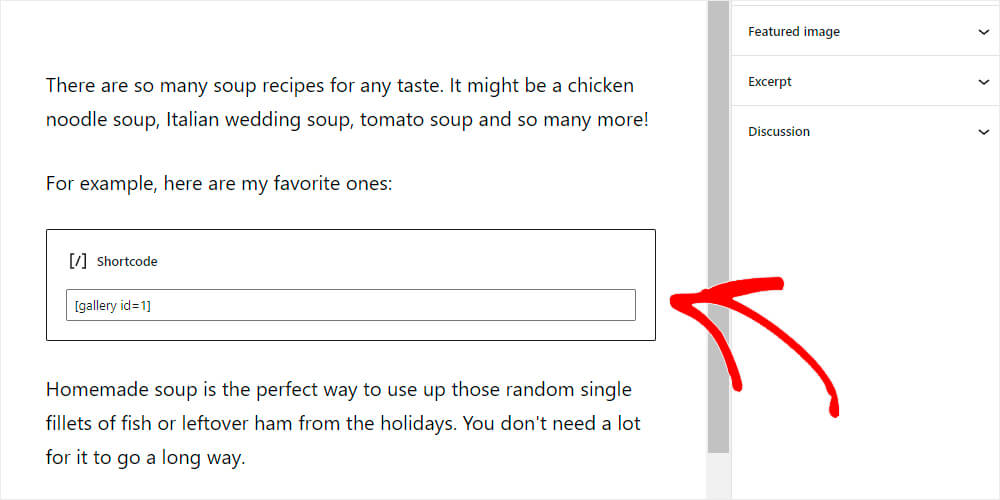
Shortcodes can be placed in posts, pages, or anywhere within the WordPress editor. Their functionality is determined by the active theme or plugins installed on your website.
Common Use Cases:
- Displaying image galleries with gallery plugins.
- Adding contact forms with form builder plugins.
- Embedding tables or other interactive elements.
These small snippets provide significant flexibility without requiring advanced technical knowledge. Once placed, WordPress processes the shortcode and renders the appropriate content.
Here’s an example of how a shortcode from a popular gallery plugin looks in the post editor:
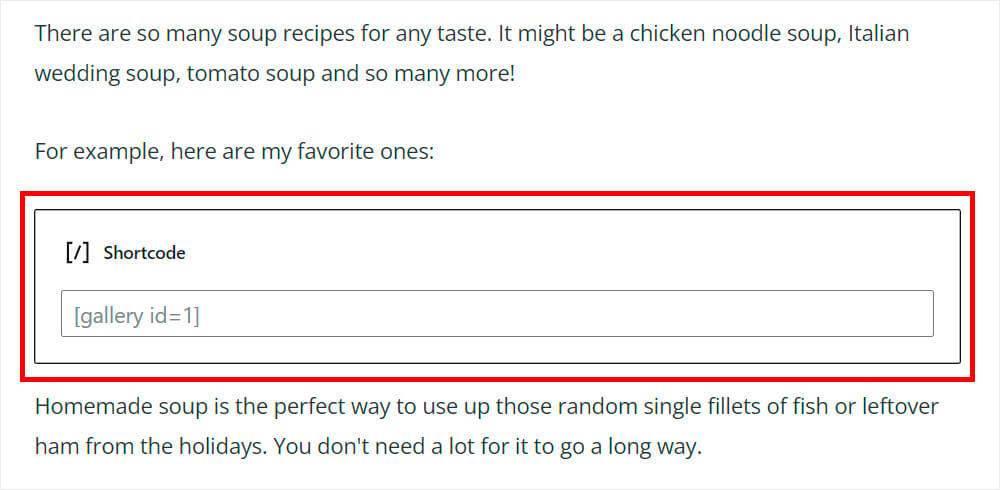
And here is what it renders on the website:

The best thing about shortcodes is that you don’t even need to be a web developer or tech-savvy person to use them, but it lets you do things that a web developer normally does.
To use them, check the list of available shortcodes supported by your theme or installed plugins. You can usually find them either on the plugin or theme description page or on their official website.
Why Add Shortcode Results To WordPress Search?
By default, WordPress only indexes the text within the shortcode brackets. Take the following shortcode, for instance:
[gallery id="12" columns="4"]The default WordPress search would index this as plain text without any context or meaning. This can be a major limitation, especially if your shortcodes display rich content such as:
- Galleries: Indexing image file names, descriptions, and alt text can enhance image discoverability. This is particularly useful for photography portfolios and cooking blogs, where images play a critical role.
- Page Builder Content: Many popular page builders rely heavily on shortcodes to create complex layouts. Without indexing this content, visitors may struggle to find relevant pages.
- Custom Content Elements: Shortcodes used for testimonials, sliders, or product showcases often hold valuable information that users might search for.
Now you know why including shortcode results in WordPress search is essential. Let’s show you how to do that on your website.
How To Include Shortcode Results In WordPress Search
To make shortcode content searchable, you’ll need a solution that extends WordPress’s default search capabilities. Here’s where SearchWP comes in.
It automatically integrates with any WordPress theme and indexes all content instantly. Using SearchWP, you can include shortcode results in WordPress with only one click.
SearchWP is the best search plugin for WordPress that is trusted by over 60,000 businesses globally. It enables you to make almost anything on your website searchable, including shortcodes, documents, and custom fields.
Here are a few other features of SearchWP that make it one of the most powerful WordPress search plugins:
- Live Search Results: Improve user experience with real-time search suggestions as users type. This feature accelerates the search process, making it easier for customers to find what they’re looking for and boosting engagement and conversions.
- PDF & Document Content Search: Make PDFs and various document types, such as Office files, fully searchable. This feature is invaluable for WooCommerce stores that offer product manuals, guides, or specifications, allowing users to find needed information without having to download and open each file.
- Customizable Search Rankings: Adjust search result rankings to highlight priority content, such as new products or special promotions. This feature ensures that the most relevant results align with your business goals.
- Customizable Search Results Page: Personalize your search results page to better serve your visitors’ needs. Enhance the layout, add filters, or display additional product details, making the search experience more user-friendly and informative.
- Search Insights and Analytics: Analyze search query patterns to understand visitor preferences. This insight helps tailor your content strategy, ensuring that your site aligns with user interests and increases overall engagement.
Let’s take a look at how you can include shortcode results in a WordPress search.
Step 1: Install & Activate SearchWP
First, you need to get your copy of SearchWP from the official website. After purchasing, log in to your account and download the plugin Zip file from the Downloads section of your profile.
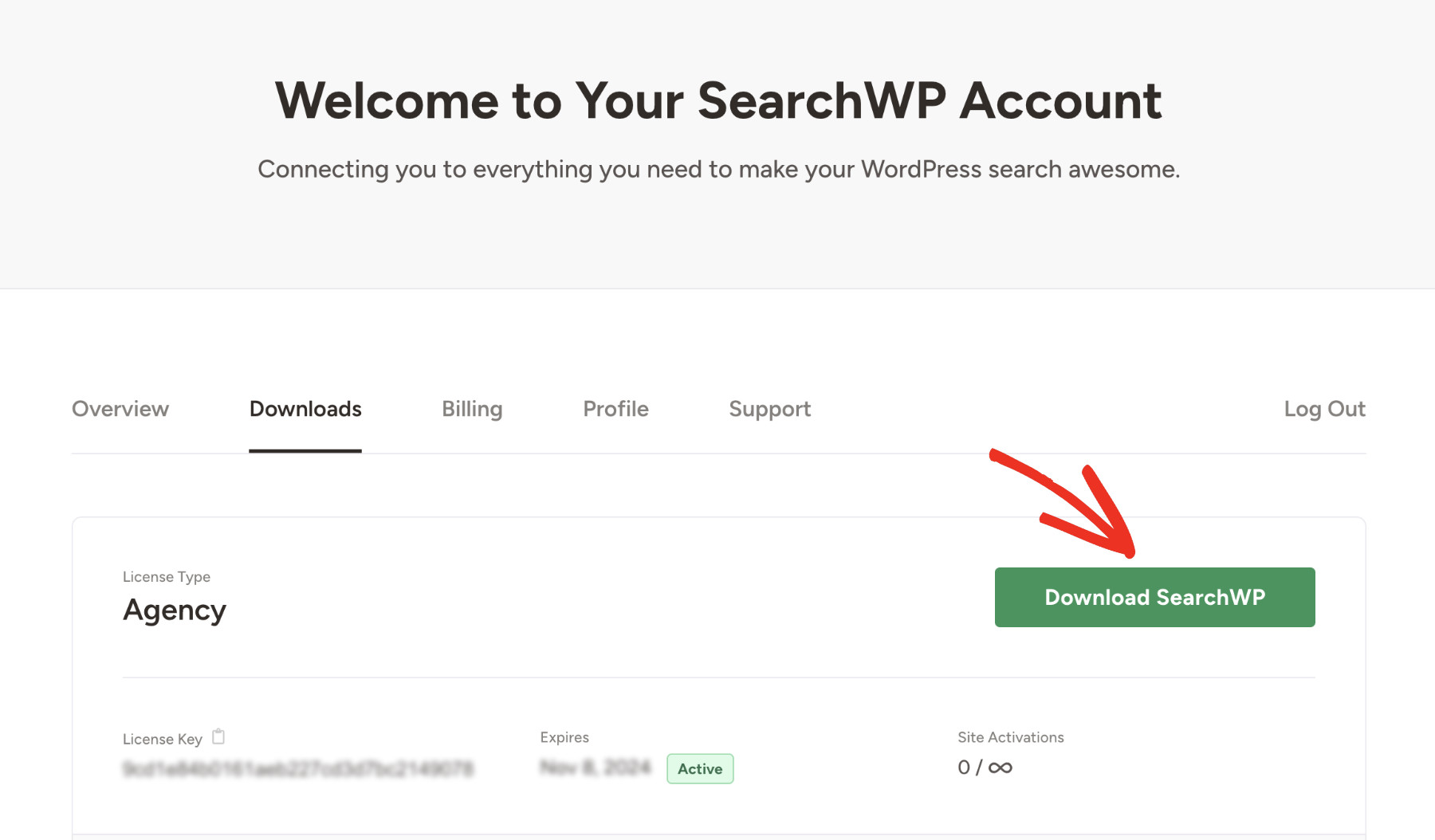
Copy your license key from the same page, as you’ll need it later to activate the plugin.
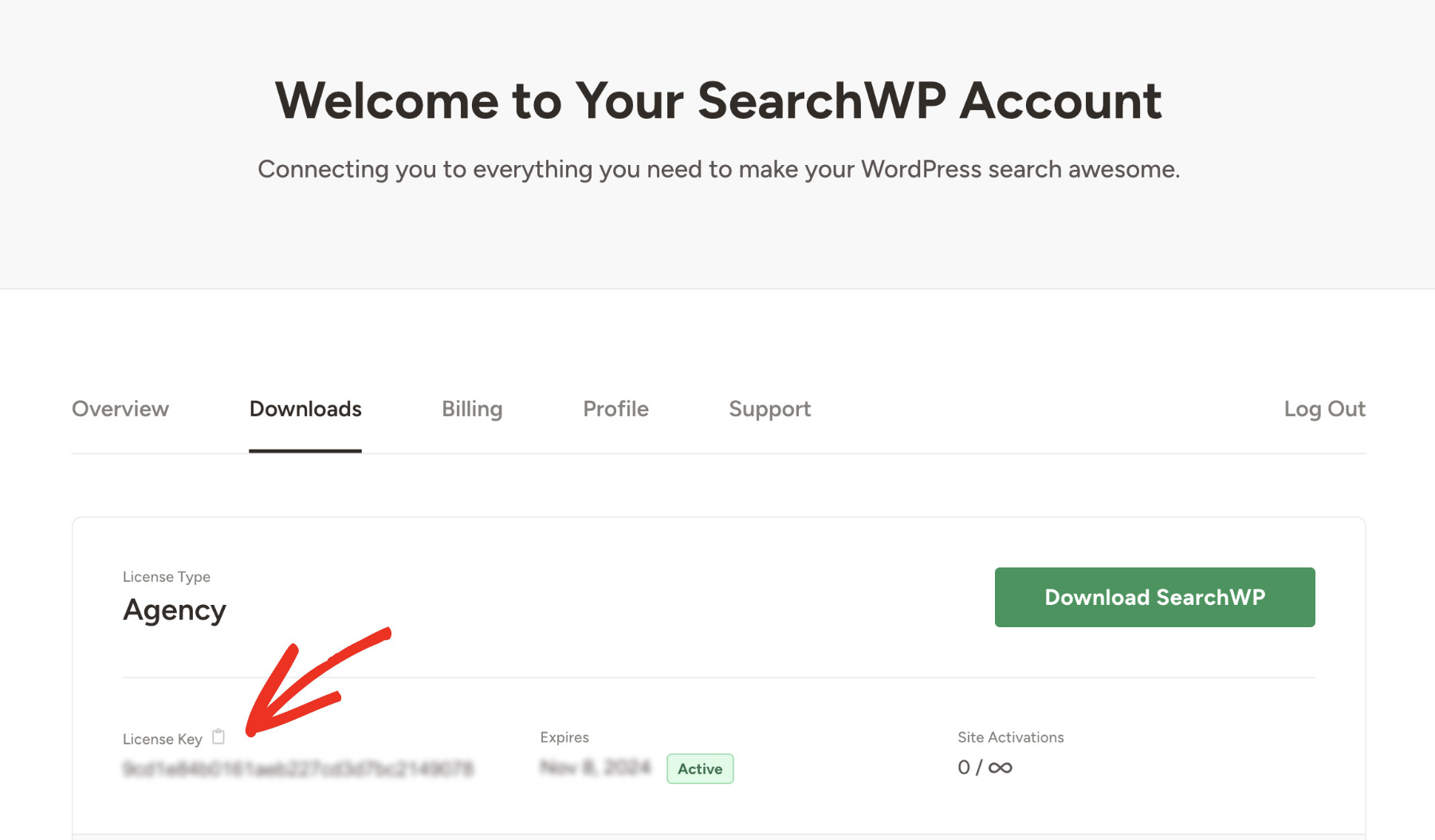
Using the plugin zip file, you can now install & activate the SearchWP plugin like any other WordPress plugin.
Once you activate the plugin, you’ll see a welcome screen to start your onboarding process. Click the “Start Onboarding Wizard” button. This will guide you through the initial setup.
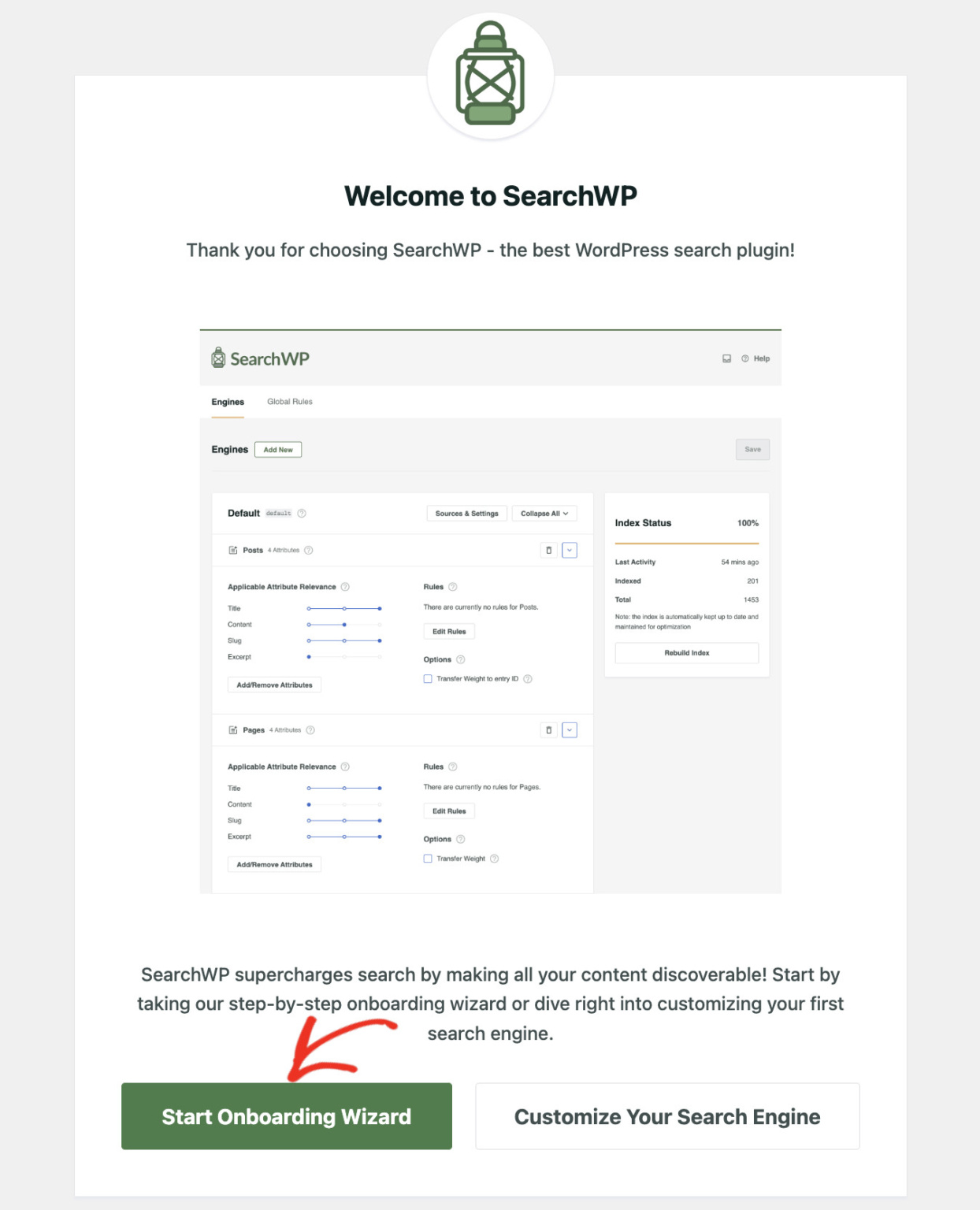
Alternatively, you can activate SearchWP directly by visiting SearchWP > Add License Key.
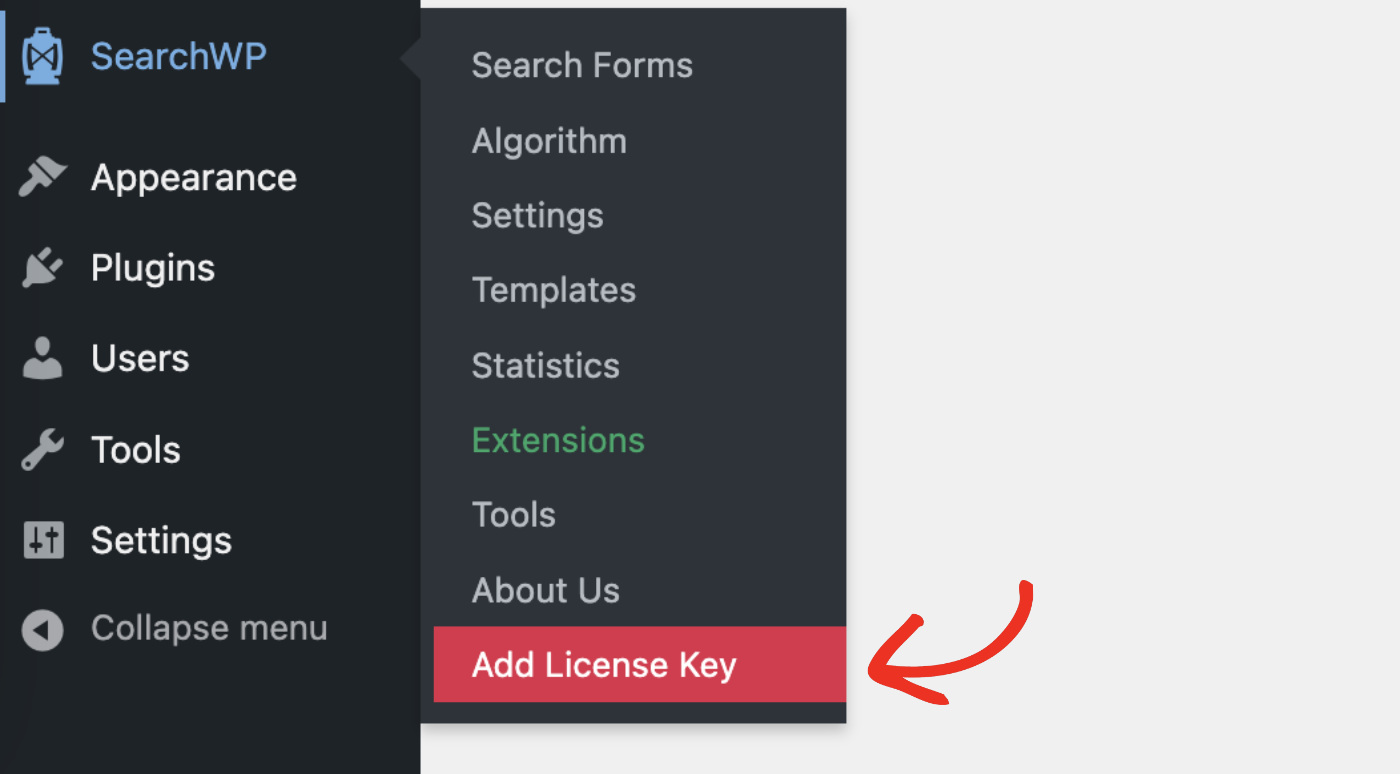
Paste your copied key in the “License Key” field and click “Verify Key.”
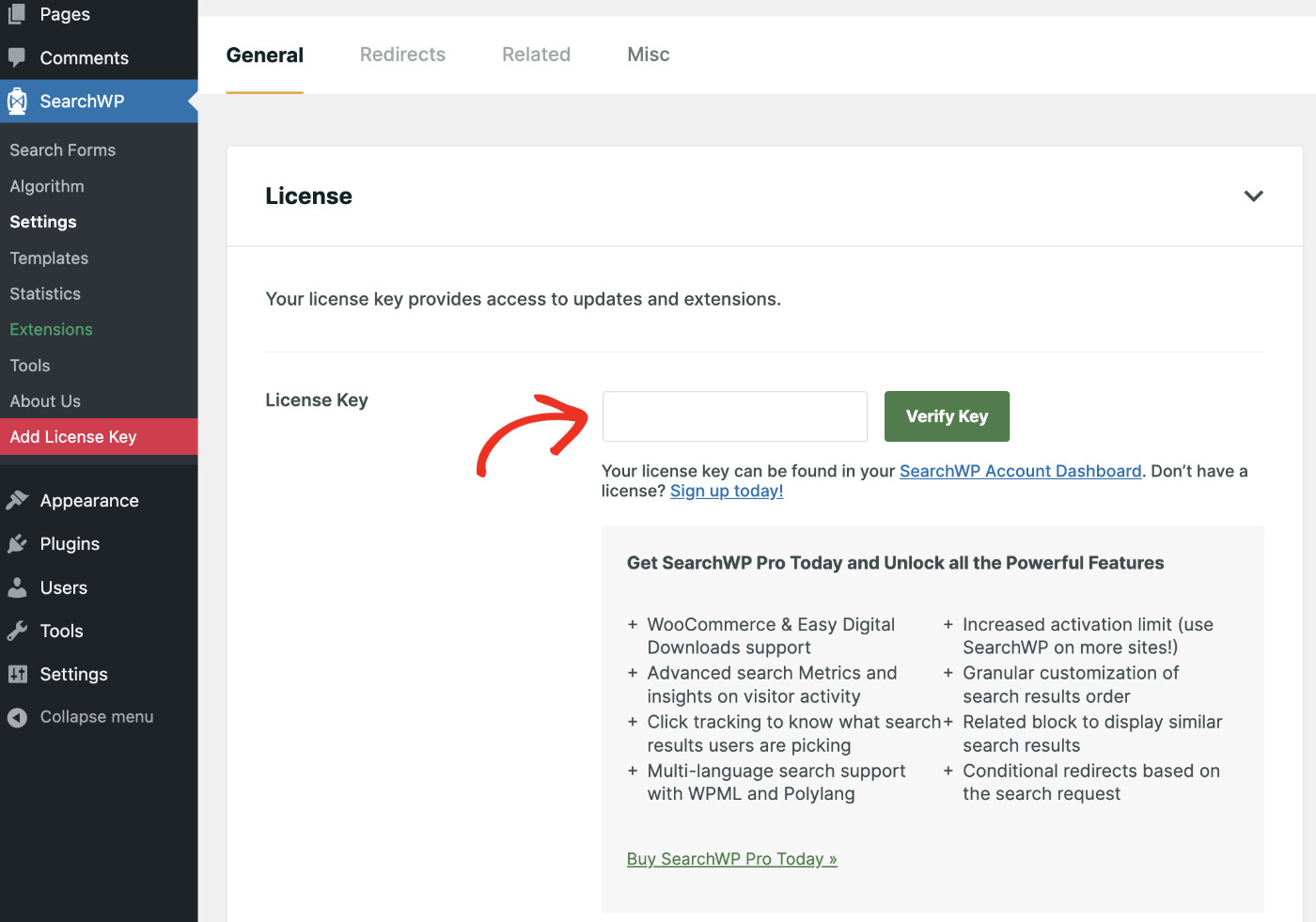
If everything worked smoothly, you’ll see the verification confirmed and your package information displayed.
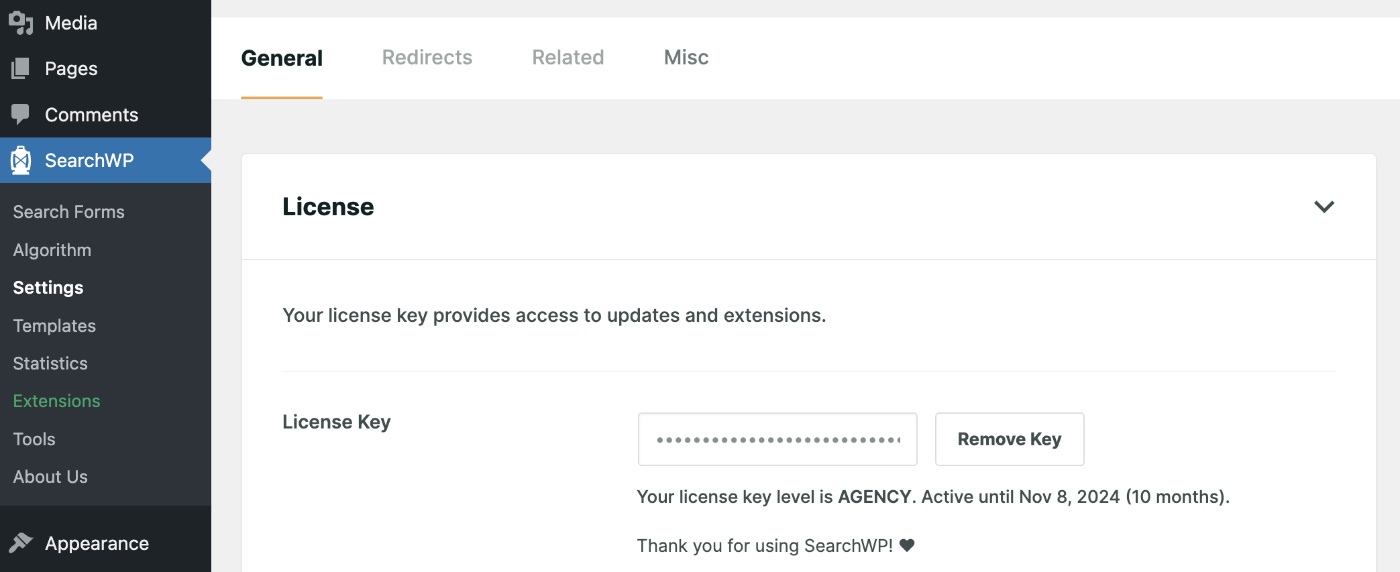
Congratulations! You have successfully installed SearchWP on your website. Now, you’re ready to include shortcode results in WordPress search.
Step 2: Include Shortcode Results In WordPress Search
SearchWP lets you include shortcode content in search results on your website with only one click. From your website backend, you just need to navigate to SearchWP > Settings.
On this page, scroll down to find ”Parse Shortcodes,” then turn it on.
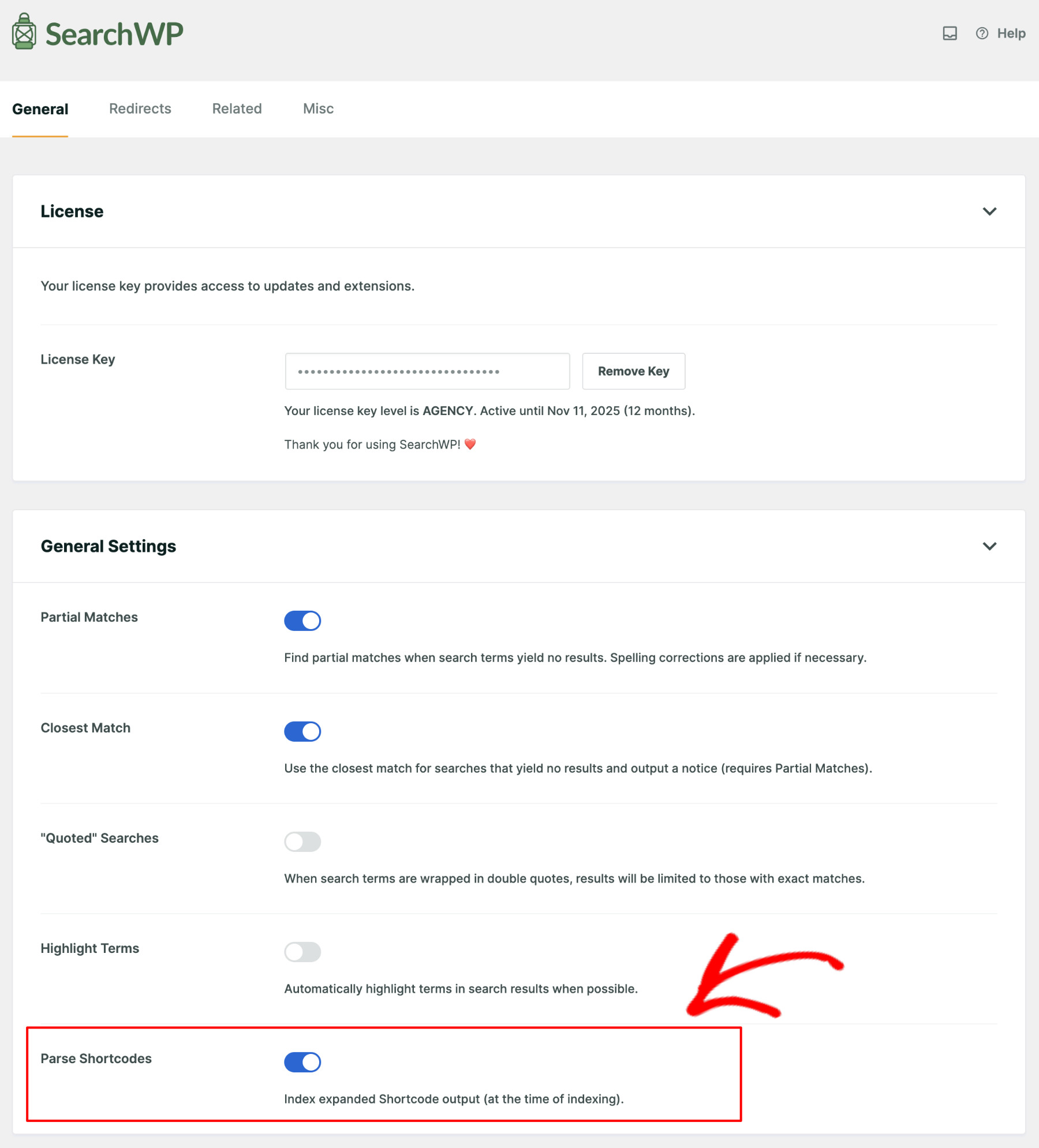
That’s it. You’ve successfully added shortcode results to the WordPress search! From now on, when a user performs a search on your website, they will find relevant content, even if it’s rendered from a shortcode.
Step 3: Test Your New Search Results
To test the improved WordPress search results, you need to leave the dashboard and go to the frontend of your website. Then, type anything related to a shortcode you have used into the search bar.
For example, for this tutorial, we’ve created a gallery with soup pictures. Let’s check if WordPress search can find this gallery.
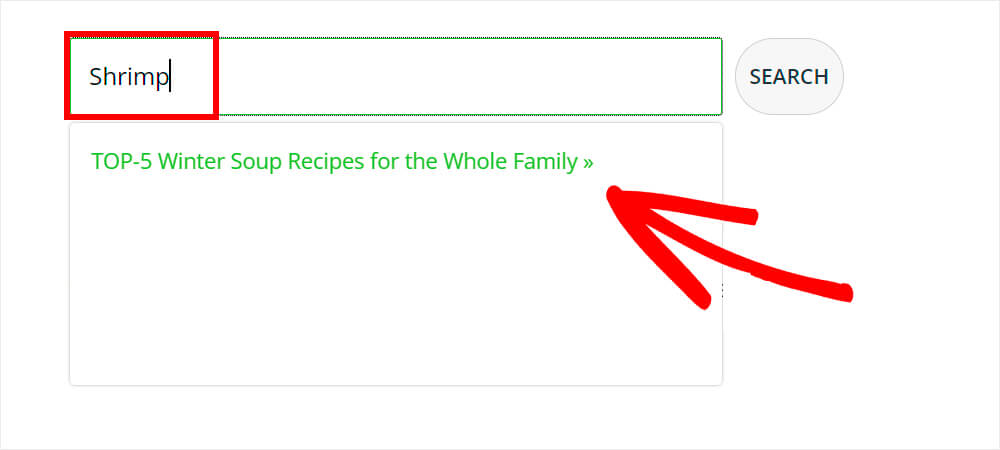
As you can see, everything works great. WordPress found an article that contains a picture of the shrimp soup.

This is a great result, given that the word “shrimp” is not mentioned either in the title or in the article’s content.
This works because WordPress now indexes the images’ alt text, even if they’re placed inside a gallery output by a shortcode.
Conclusion
You have learned how to include shortcode results in WordPress search from this article. It opens up a lot of possibilities and helps your website visitors find hidden content.
If you liked this article, you’d love to know how to add fuzzy search to WordPress. This will help your visitors find content even if they make a typo.
Get SearchWP now to add powerful search features to your website!




